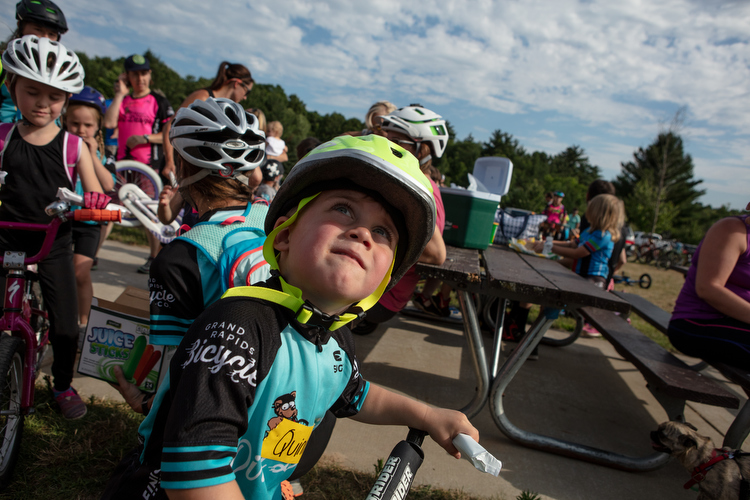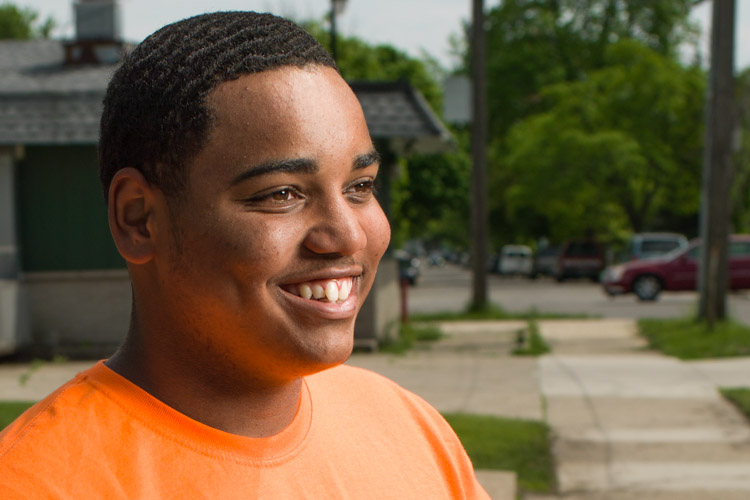Winning the right to be heard: Melvin Thomas poised to engage youth in urban classrooms
Davenport University’s Master of Urban Education trains teachers on the specific needs of the urban classroom. After eight years of counseling students, Melvin Thomas will attend the program to learn how to mentor youth in more profound ways.

Melvin Thomas didn’t know it at the time, but his career serving youth began at a funeral: the service of his cousin who was murdered at the age of 16 in Thomas’ home town of Benton Harbor. Thomas was just 21 when he attended, and is still affected by the emotional experience of that day.
“You could hear a pin drop in that room,” Thomas says, as he recalls the pastor preaching powerfully on “issues of life and death.”
Thomas, 40, who will be starting Davenport University’s Master of Urban Education (M.Ed.) program this fall, knew then that he wanted to mentor youth in a serious way. Davenport’s program will provide him the opportunity to do graduate level coursework while he earns his teaching certification and practices new skills in local classrooms.

Thomas, a calm and confident man with a soft voice that requires the listener to lean in, explains that before his death, his cousin had been in and out of lock up facilities because of gang involvement. As his elder, Thomas realizes now that he could have done more to help guide him. They kept in touch through letters and phone calls over the years, but Thomas always gave his cousin standard advice.
“Do what’s right, hang with the right people…I never blatantly told him to get out of gangs, since I grew up in that environment,” he says. “I couldn’t share with him a way to be positive when he got out, because I was still out there clubbing and representing street stuff.”
Though Thomas was attending Grand Rapids Community College at the time, he was struggling with daily life and his classes.
The summer before he transferred to Kuyper College in Grand Rapids, Thomas had an experience that gave his life direction and moved him toward service work. While visiting Benton Harbor, Thomas heard about One Step Ministry through a friend. The ministry fed and housed people in need, and Thomas joined members of the organization that regularly walked the streets to pray with people requesting help.
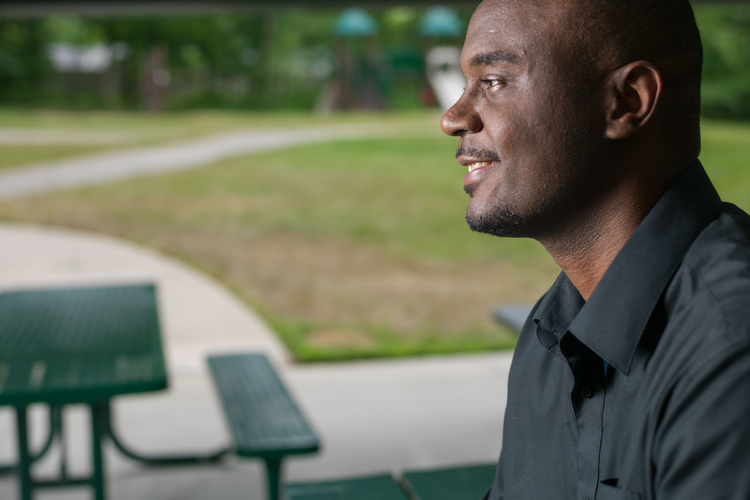
Thomas remembers the tensions simmering in the town that summer, which was just a year before the Benton Harbor riots of 2003. Sparked when an African American man was killed while being chased by police, residents of this small, predominantly African American town set fire to vacant houses to express discontent with the state of the community.
After graduating from Kuyper in 2003, Thomas worked for several years in minority recruitment programs at Calvin College and then at the Boys and Girls Club of Grand Rapids Youth Commonwealth, where he helped youth with parents in prison to find mentors.
Thomas was ordained as a minister in 2010 and is now a chaplain at Wedgwood Christian Services, a social service organization that offers residential substance abuse and psychiatric treatment for youth. At the job for eight years, part of Thomas’ work takes him into Hope Academy of West Michigan, a charter school dedicated to at-risk youth.
Known as Pastor Melvin, Thomas runs the Young Life Ministry within the school. He finds ways to reach out to kids at lunch or after school, careful to keep a clear delineation between church and state. He’s emphatic that kids willingly engage with him and ultimately with issues of faith — he never forces anything upon them. Instead, he builds relationships — what he calls “winning the right to be heard.”
Thomas recalls a seventh grader struggling to stay in school who asked Thomas to pray with him every week. While the youth eventually dropped out, he stayed in touch with Thomas and is now finishing high school through a virtual academy. Thomas is proud to see him finishing what he started, especially because he will be the first high school graduate in his family.
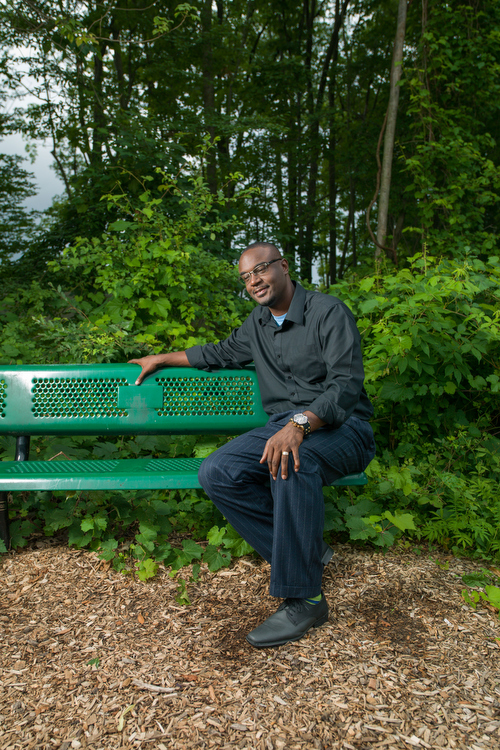
While Thomas sees the impact he is having with youth in stories like these, he began to wonder how he could spread his influence by being in the classroom on a more regular basis. Since he is only in the school two days a week, he only sees a snapshot of kids’ lives, and for many youth, their path is perilous.
“Kids frustrated with school tell me all the time, ‘Melvin, I am just going to go work’ — meaning drop out and find a job rather that get a diploma,” he says. “While we talk about faith, a lot of my conversation is about grades and home life, and I end up talking to their teachers about how to support them.”
Thomas hopes that Davenport’s M.Ed. program will help him to serve youth in even more profound ways. “For a long time, I have been in behavior management-related positions,” he says. “I am now ready to learn more about teaching and how to motivate kids to learn. I want to learn creative ways to be engaging.”
Training teachers in cultural responsibility and practicality
To Susan Gunn, Dean of Davenport University’s College of Urban Education (CUE), Thomas already has one of the keys to successful urban teaching: a strong interest in exposing youth to rich learning experiences. Gunn has a history of such work, including the development of STEM-based community outreach academic summer camp programs. She recalls one student who reluctantly attended a Forensic Science camp recently after being enrolled by his mother. By the end of the camp, his attitude had turned around and he started talking about pursuing college coursework in science. “If we don’t expose kids to things, they can’t dream about them,” she says with strong conviction.
One aspect that differentiates Davenport’s program from traditional teacher training programs is that the program offers three years of coaching for teachers beyond graduation, Gunn explains. “A big problem in urban schools is turnover,” she says. “Students suffer with not having consistency. We want to make sure that our new teachers are supported.”
To further support teachers in high need schools, Gunn stresses the importance of connecting educators to community stakeholders and partners. That’s why Davenport offers coursework that allows educators to network directly with organizations such as the Grand Rapids Urban League. Teachers gain community support and assistance in planning activities such as experiential learning opportunities for students.
Beyond planning curriculum, prospective teachers in CUE learn how to tailor their instruction to students in urban classrooms, which Gunn explains may include students who have experienced trauma or have special needs. “Not always, but often in urban schools, students have experienced some form of trauma,” she explains. “We help teachers to find ways to help mitigate some of the barriers students have to learning.”
And while CUE does not certify teachers in Special Education, Gunn explains that the program dedicates time to educating teachers on how to reach students at multiple levels and with different needs.
Teachers are also encouraged to look inward: the ‘Foundations in Urban Education’ course covers many issues facing urban schools, including racism and poverty, and prospective teachers are asked to unpack such questions as, ‘How do you view your students? How do you view yourself?’
Gunn admits that such inquiry isn’t easy. “Some students are turned off,” she says. “Others say ‘Oh my goodness, now I understand!’ This knowledge engenders a sense of awareness that they can take into the classroom.”
At its core, CUE stresses cultural responsibility and practicality when training teachers, both of which Gunn feels are appropriate for the unique and rewarding work of teaching in urban schools.
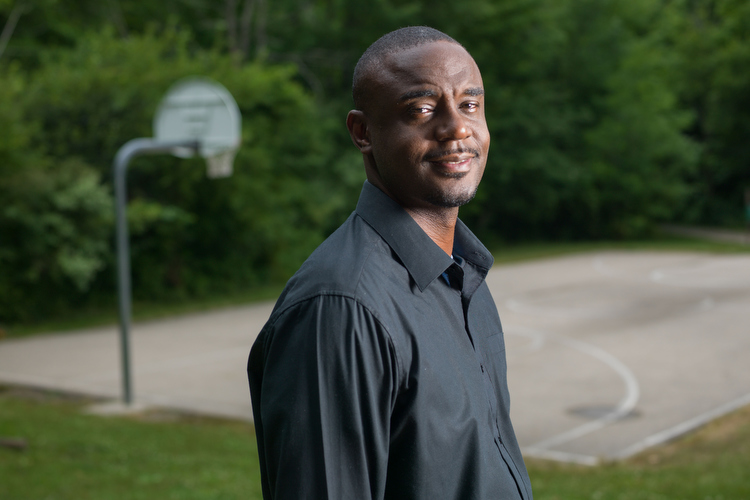
“When we interview our candidates, some young teachers say ‘it’s hard to manage my classroom and my students.’ Gunn says. “My take is: you are looking at the students, but have you looked at yourself? Are you really taking advantage of the skills and interests that students bring to the table? Through mentorship, we help teachers translate their content knowledge so that students are impacted.”
Shaping conversations happening in urban schools
Thomas’ passion for serving youth doesn’t stop with his future students. His two sons, Josiah, 12, and Melvin III, nine, provide him with a vision. In the face of high suspension rates for students of color and poor educational outcomes for African American youth, Thomas undertakes his graduate degree with a level of seriousness, because he is interested in pushing for improvements that would impact youth just like his sons.
During his own primary grades, Thomas attended two highly segregated schools: in Benton Harbor, with primarily African American peers, and in St. Joseph, with white peers.
“There’s one difference I remember between those two schools: in St. Joseph, kids talked about college in everyday conversation,” he says. “In Benton Harbor, kids didn’t talk like that.”
“My sons know I love Michigan State,” he says with a laugh. “And now one of my sons has found a college he loves: University of Kentucky, because of their basketball team. He loves science and wants to major in science or technology.”
Thomas is also excited to become a teacher at a time when interest is growing in the recruitment of teachers of color. “I want my sons to see diversity in schools and see diversity in their teachers,” he says. “It’s important that they interact with a wide range of people if they are going to navigate this world and be successful.”
This article is part of Michigan Nightlight, a series of stories about the programs and people that positively impact the lives of Michigan kids. It is made possible with funding from the W.K. Kellogg Foundation. Read more in the series here.
Photos by Adam Bird of Bird + Bird Studio.

